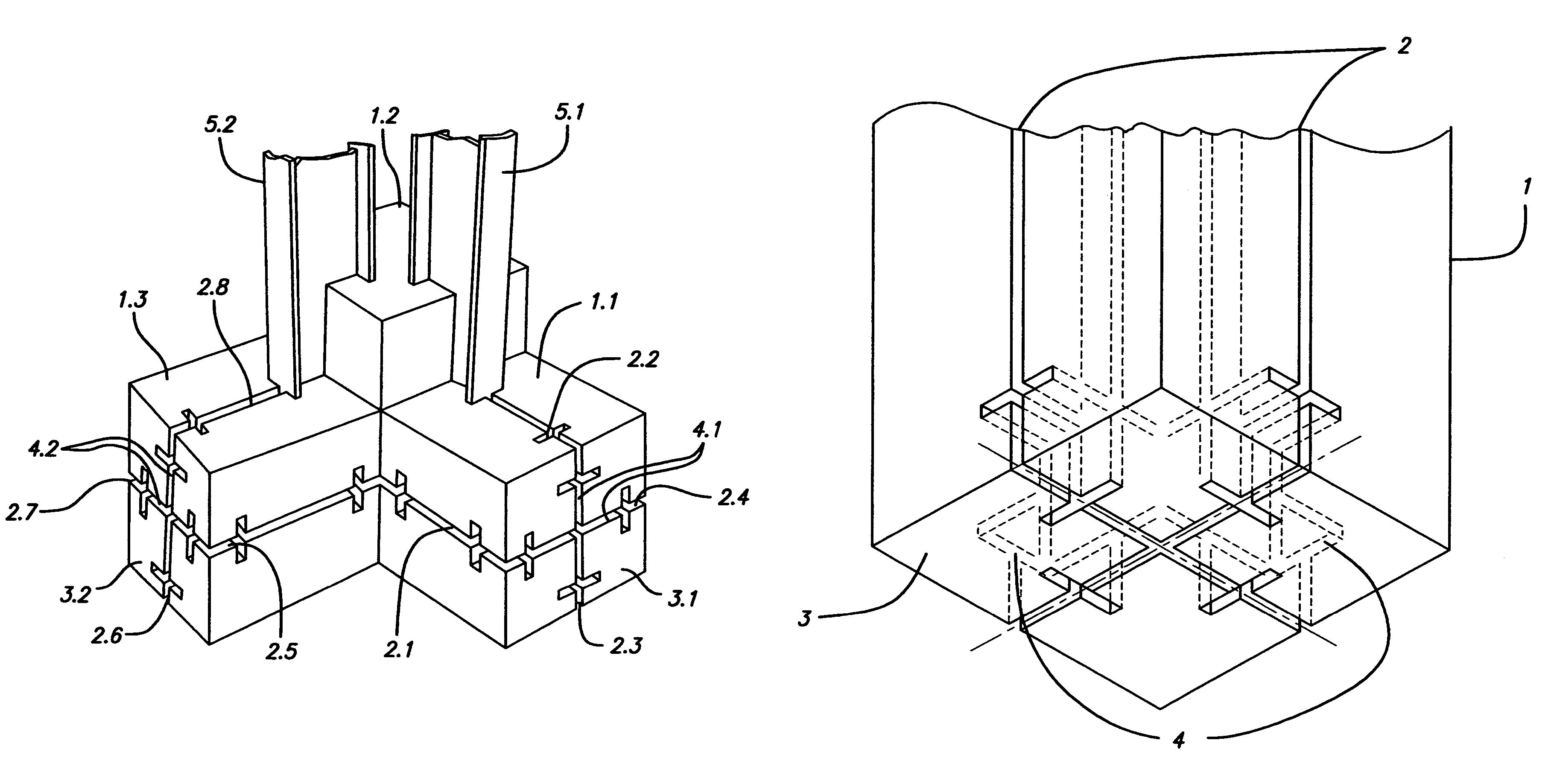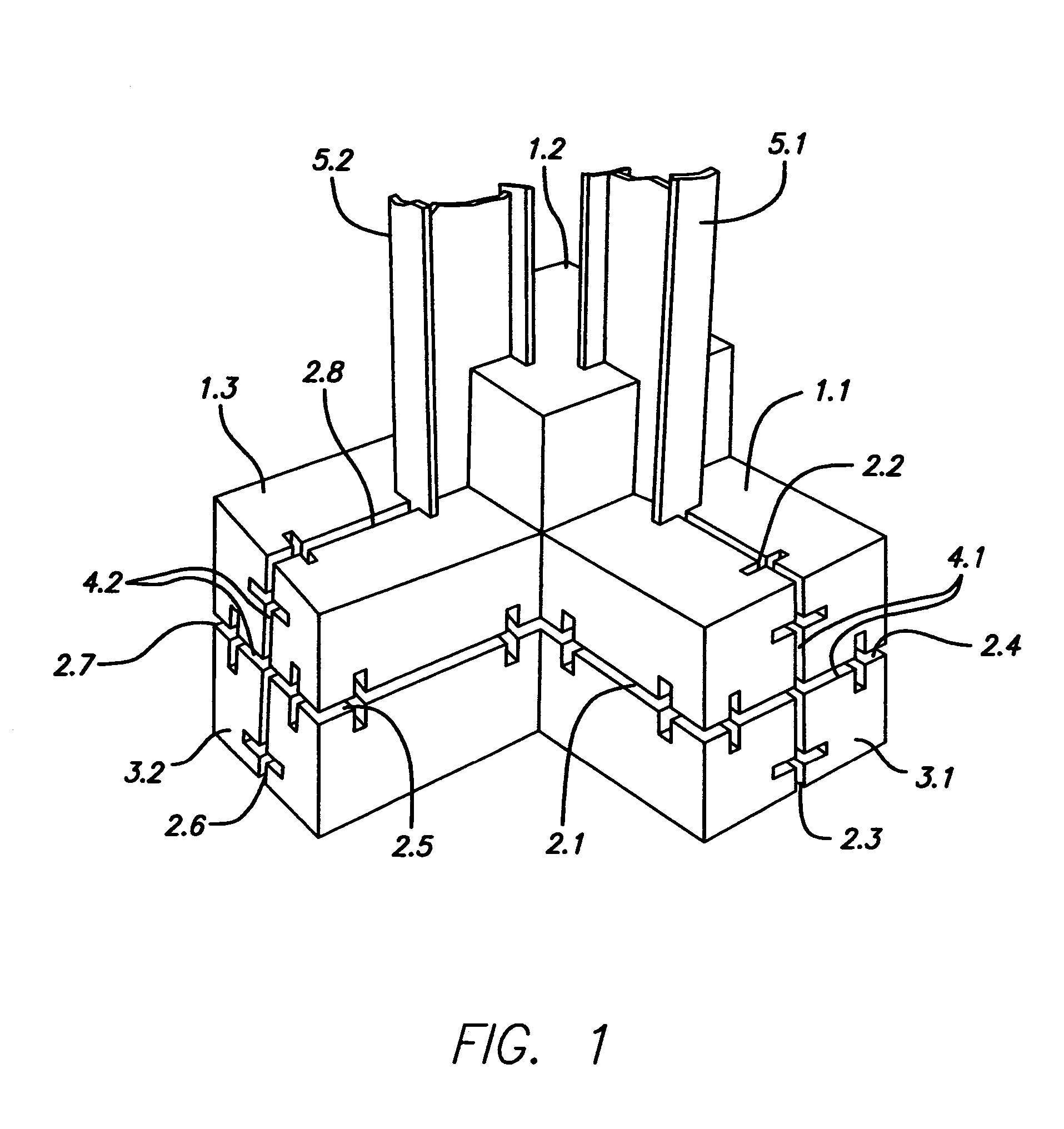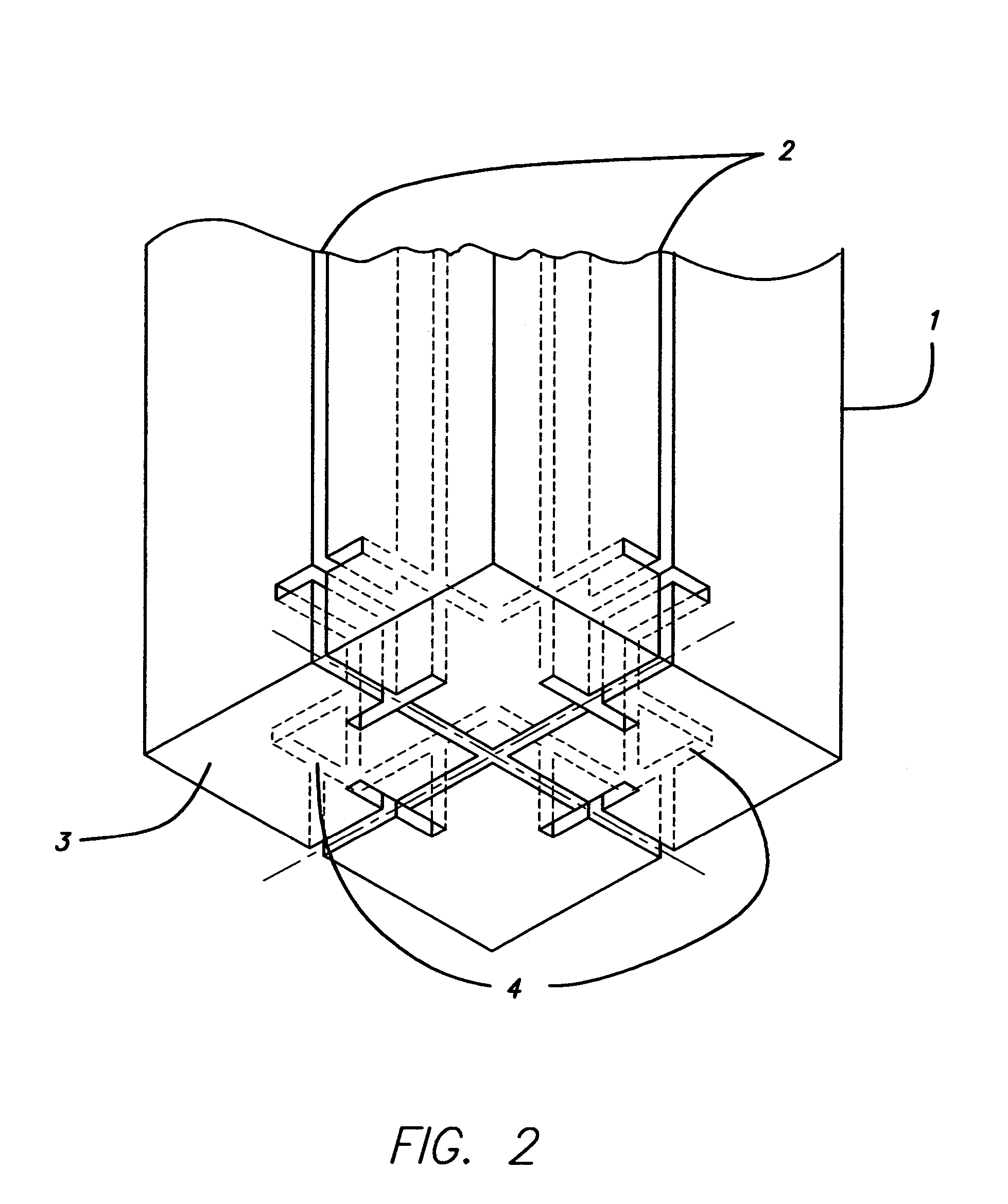Universal structural element
a technology of structural elements and components, applied in the direction of shaft equipment, manufacturing tools, couplings, etc., can solve the problems of inability to meet high static requirements, inability to modify the arrangement of elements for reconstruction works and disassembly for re-use purposes, and inability to meet the requirements of high static requirements. , to achieve the effect of low assembly cost and cost-effectiveness
- Summary
- Abstract
- Description
- Claims
- Application Information
AI Technical Summary
Benefits of technology
Problems solved by technology
Method used
Image
Examples
Embodiment Construction
[0030]As shown in FIG. 1 and FIG. 2, a universal structural element 1 (1.1; 1.2; 1.3) in the form of a profile body having a substantially square cross-section comprises on all longitudinal sides undercut longitudinal grooves 2 (2.1 to 2.8) which are connected on the end sides 3 (3.1; 3.2) by means of intersecting undercut grooves 4 (4.1; 4.2) having an identical cross-section.
[0031]The corner formation, as illustrated by way of example in FIG. 1, of a three-dimensional structure, which is produced from universal structural elements 1 in the form of profile bodies, is achieved in that two universal elements 1.1 and 1.3, which are disposed in a horizontal, manner in the direction of the wall, are connected together in a non-positive and positive manner by way of undercut grooves 4 in the end sides 3 by means of double-T-shaped connectors 5 (5.1; 5.2) by way of an undercut longitudinal groove 2 of a vertically disposed universal structural element 1.2. Depending upon specific requirem...
PUM
 Login to View More
Login to View More Abstract
Description
Claims
Application Information
 Login to View More
Login to View More - R&D
- Intellectual Property
- Life Sciences
- Materials
- Tech Scout
- Unparalleled Data Quality
- Higher Quality Content
- 60% Fewer Hallucinations
Browse by: Latest US Patents, China's latest patents, Technical Efficacy Thesaurus, Application Domain, Technology Topic, Popular Technical Reports.
© 2025 PatSnap. All rights reserved.Legal|Privacy policy|Modern Slavery Act Transparency Statement|Sitemap|About US| Contact US: help@patsnap.com



